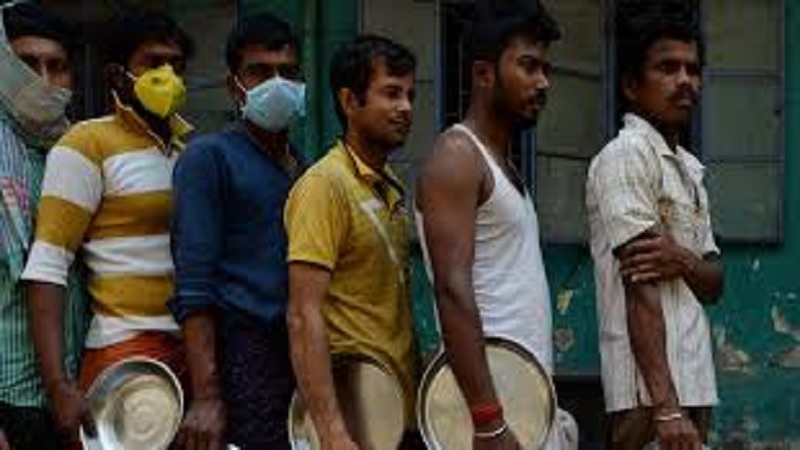 Image Courtesy:scroll.in
Image Courtesy:scroll.in
The nationwide lockdown to curb the spread f the coronavirus has exacerbated the plight of migrant workers and sundry urban poor, many of whom anyway lead a hand-to-mouth existence working as daily wagers in the informal sector. A lot of these people have no food and rely on either the government or the civil society to provide relief during this time.
In light of this, activists of the Steering Committee of the Right to Food Campaign (RTFc) say that first of all the relief measures announced by the state have come late and are inadequate. They write, “We, at the RTFc, believe that the importance of the continuation of food support provisions cannot be emphasized enough in these times. Along with our longstanding demand for universal PDS, we reiterate that the Government must support both NFSA and non-NFSA beneficiaries with 10kgs of grain, dal 1.5 kg and 800 gm edible oil per person per month, for the next six months (i.e. until September) at the very least.”
They write that reports of at least 270 people dying of hunger, exhaustion, state violence, suicide and inability to access healthcare services have come to people’s knowledge. Due to hospitals and clinics being shut or not working to their full capacity, many ill people have no access to healthcare. Due to restrictions on movement too, healthcare for most is out of reach. To add to these woes, the onset of summer has become an excruciatingly painful time as they have to walk miles to get water.
The activists at the RTFc write that the lockdown has also strengthened the policing of regular people in the state causing people all over the country to face sever police brutality. They write, “Migrant workers wanting to secure their right to food and return to their native places have been treated with acute inhumanity, so much so that many have been slammed with charges of Section 144 violations. We demand that the Government must take due cognizance of this immense humanitarian crisis affecting the vulnerable sections by putting an immediate end to police brutalities. The Government must also arrange safe and sanitized modes of public transport for the migrant workers to return to their native places.”
In conclusion, they say that the lockdown which has been imposed for a duration of 40 days, would have allowed the health authorities to prepare a robust healthcare system to deal with the coronavirus infection. They say that the government must now focus on putting in place systems for “vigorous identify, trace, test, isolate, treat strategies to be followed.”
They say that while the government is looking for even one case to declare “hotspots” and extend “sealings”, the cases are only bound to increase with easing movement restrictions. Now, even those who managed the initial phase of the lockdown, are feeling distressed due to money and resources running out.
“We insist that the social and economic consequences of continuing such blanket measures are too high and cannot be justified. The right to a dignified life of the people cannot be threatened at any point of time, more so during this global pandemic,” they say.
Related: